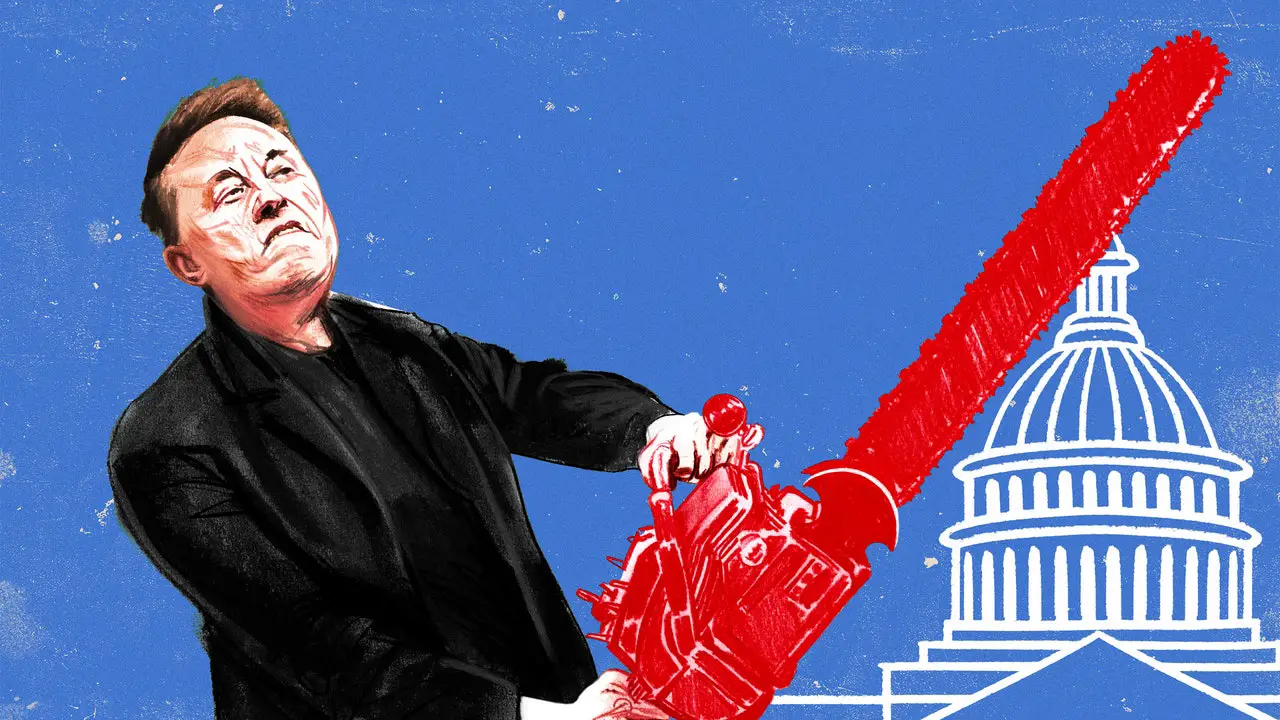Listen and subscribe: Apple | Spotify | Google | Wherever You Listen
Sign up for our daily newsletter to get the best of The New Yorker in your in-box.
It is hard to calculate all the good that Atul Gawande has done in the world. After training as a surgeon at Harvard, he taught medicine inside the hospital and in the classroom. A contributor to The New Yorker since 1998, he has published widely on issues of public health. His 2007 article in the magazine and the book that emerged from it, “The Checklist Manifesto: How to Get Things Right,” have been sources of clarity and truth in the debate over health-care costs. In 2014, he published “Being Mortal: Medicine and What Matters in the End,” a vivid, poetic, compassionate narrative that presents unforgettable descriptions of the ways the body ages and our end-of-life choices.
Gawande’s work on public health was influential in the Clinton and Obama Administrations, and, starting in November, 2020, he served on President Joe Biden’s COVID-19 Advisory Board. In July, 2021, Biden nominated him as the assistant administrator for the Bureau of Global Health at the U.S. Agency for International Development, where he worked to limit disease outbreaks overseas. Gawande, who is fifty-nine, resigned the position on the day of Donald Trump’s return to the Presidency.
When we spoke recently for The New Yorker Radio Hour, Gawande, usually a wry, high-spirited presence, was in a grave mood. There were flashes of anger and despair in his voice. He was, after all, watching Trump and Elon Musk dismantle, gleefully, a global health agency that had only lately been for him a source of devotion and inspiration. As a surgeon, Gawande had long been in a position to save one life at a time. More recently, and all too briefly, he was part of a vast collective responsible for untold good around the world. And now, as he made plain, that collective has been deliberately cast into chaos, even ruins. The cost in human lives is sure to be immense. Our conversation has been edited for clarity and length.
President Biden appointed you as the assistant administrator for global health at U.S.A.I.D., a job that you’ve described as the greatest job in medicine. You stepped down on Trump’s Inauguration Day, and he immediately began targeting U.S.A.I.D. with an executive order that halted all foreign aid. Did you know, or did you intuit, that Trump would act the way he has?
I had no idea. In the previous Trump Administration, they had embraced what they themselves called the “normals.” They had a head of U.S.A.I.D. who was devoted to the idea of development and soft power in the world. They had their own wrinkle on it, which I didn’t disagree with. They called it “the journey to self-reliance,” and they wanted to invest in Africa, in Asia, in Latin America, to enable stronger economies, more capacity—and we weren’t doing enough of that. I actually continued much of the work that had occurred during that time.
Tell me a little bit about what you were in charge of and what good was being done in the world.
I had twenty-five thousand people, between D.C. and sixty-five countries around the world, working on advancing health and protecting Americans from diseases and outbreaks abroad. The aim was to work with countries to build their systems so that we protected global health security and improved global outcomes—from reducing H.I.V./AIDS and other infectious diseases like malaria and T.B., to strengthening primary health-care systems, so that those countries would move on from depending on aid from donors. In three years, we documented saving more than 1.2 million lives after COVID alone.
Let’s pause on that. Your part of U.S.A.I.D. was responsible, demonstrably, for saving 1.2 million lives—from what?
So, COVID was the first global reduction in life expectancy in seventy years, and it disrupted the ability across the world to deliver basic health services, which includes H.I.V./AIDS [medications], but also included childhood immunizations, and managing diarrhea and pneumonia. Part of my target was to reduce the percentage of deaths in any given country that occur before the age of fifty. The teams would focus on the top three to five killers. In some places, that would be H.I.V.; in some places that would be T.B. Safe childbirth was a huge part of the work. And immunizations: forty per cent of the gains in survival for children under five in the past fifty years in the world came from vaccines alone. So vaccines were a big part of the work as well.
What was the case against this kind of work? It just seems like an absolute good.
One case is that it could have been more efficient, right? Americans imagine that huge sums of money go to this work. Polls show that they think that a quarter of our spending goes to foreign aid. In fact, on a budget for our global health work that is less than half the budget of the hospital where I did surgery here in Boston, we reached hundreds of millions of people, with programs that saved lives by the millions. That’s why I describe it as the best job in medicine that people have never heard of. It is at a level of scale I could never imagine experiencing. So the case against it—I woke up one day to find Elon Musk tweeting that this was a criminal enterprise, that this was money laundering, that this was corruption.
Where would he get this idea? Where does this mythology come from?
Well, what’s hard to parse is: What is just willful ignorance? Not just ignorance—it’s lying, right? For example, there’s a statistic that they push that only ten per cent of U.S.A.I.D.’s dollars actually got to recipients in the world. Now, this is a willful distortion of a statistic that says that only ten per cent of U.S.A.I.D.’s funding went to local organizations as opposed to multinational organizations and others. There’s a legitimate criticism to be made that that percentage should be higher, that more local organizations should get the funds. I did a lot of work that raised those numbers considerably, got it to thirty per cent, but that was not the debate they were having. They’re claiming that the money’s not actually reaching people and that corruption is taking it away, when, in fact, the reach—the ability to get to enormous numbers of people—has been a best buy in health and in humanitarian assistance for a long time.
Now the over-all agency, as I understand it, had about ten thousand people working for it. How many are working at U.S.A.I.D. now?
Actually, the number was about thirteen thousand. And the over-all number now—it’s hard to estimate because people are being turned on and off like a light switch—
Turned on and off, meaning their computers are shut down?
Yeah, and they’re being terminated and then getting unterminated—like, “Oops, sorry, we let the Ebola team go.” You heard Elon Musk say something to that effect in the Oval Office. “But we’ve brought them back, don’t worry.” It’s a moving target, but this is what I’d say: more than eighty per cent of the contracts have been terminated, representing the work that is done by U.S.A.I.D. and the for-profit and not-for-profit organizations they work with, like Catholic Relief Services and the like. And more than eighty per cent of the staff has been put on administrative leave, terminated, or dismissed in one way or the other.



